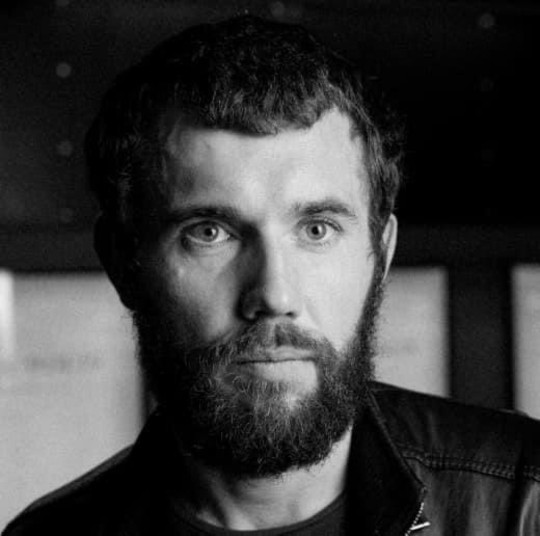The 2022 Jury
Hanna Bilobrova is a computer engineer, actress and film maker. She shared Mantas Kvedaravičius’s life and his work since the film Partenonas in 2016.
Rosa Bartoli is a film scholar who teaches at the Catholic University in Milan. She did her PhD in Cambridge where she was a colleague of Mantas Kvedaravičius.
Chowra Makaremi is an anthropologist and director, and is the EASA executive committee officer for ’emerging issues’.
Background
Mantas Kvedaravičius was a member of our association. The idea of setting up a film award in his name was put forward by Deana Jovanovic and embraced by the Executive and local organizing committees, as a way for us to celebrate his memory and pay tribute to his unique work. The Award also gives another opportunity to shine a light on the ongoing Russian war in Ukraine, and reaffirm our unambiguous support to the anti-imperialist engagement illustrated by Mantas’s work. We felt the urge to have a time of collective memorialization that is the occasion for our community to affirm our values and recognize Mantas’s intellectual, political and artistic legacy of courage and love.
The Mantas Kvedaravičius prize distinguishes a medium or long feature documentary that is remarkable by its cinematographic anthropological and engaged dimensions, and as such, in the wake of Mantas Kvedaravičius’s path in research, creation and action. Mantas Kvedaravičius’s approach was that of a documentary tradition with strong narrative construction and storytelling, close to the visual codes and grammar of feature films (he is also the director of feature films Prologos and Partenonas that premiered in venice in 2019).
Mantas Kvedaravičius’s cinema was ethnographic in the sense that it resulted from long-term engagement on the field, and explored ethnographic questions such as memory, lived experiences of violence, temporality, the everyday of conflicts, etc. His work on dangerous and sensitive fields was in touch with burning political and social issues, and recognized as an important contribution to the advancement of human rights. However, his visual research was clearly distinct from ‘investigative’ approaches: it was attached to a poetry of images (minute attention to light, long shots, slowness, sensitive dimension focusing on the texture of things and beings through a work of image and sound). In this sense, Kvedaravičius’s cinema was not about denouncing but capturing the everyday and profound experience of conflicts on our social bodies, through the visible and the invisible.
The 2022 Winner
We filmed my grandmother over the course of three years, to document the life she still lives despite living with Alzheimer’s disease.
The five other nominees
The six films in the selection were of very high quality and spoke deeply to some aspects of Mantas’s filmmaking: looking at everyday life under conflict, allowing a slow pace of observation, archiving resistance.
The film takes the viewer on a journey through the periphery of Ethiopian capital Addis Ababa – an allegorical narrative about the becoming urban of an African society on the edge of civil war.
We filmed my grandmother over the course of three years, to document the life she still lives despite living with Alzheimer’s disease.
The incredible journey taken by a transhumant family across the High Atlas mountains and the very challenges of nomadism within an ever transforming Moroccan society.
A mother and daughter confront the past after years of civil war in Colombia, but end in the difficult dilemma between reconciliation and political ideals.
